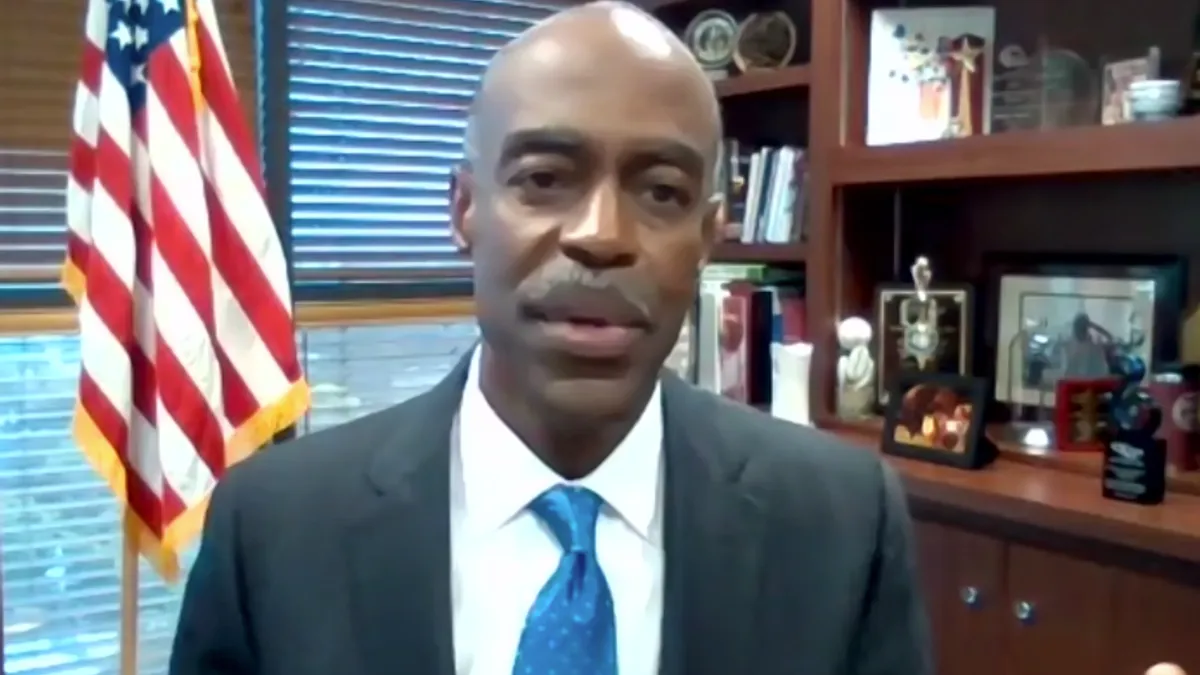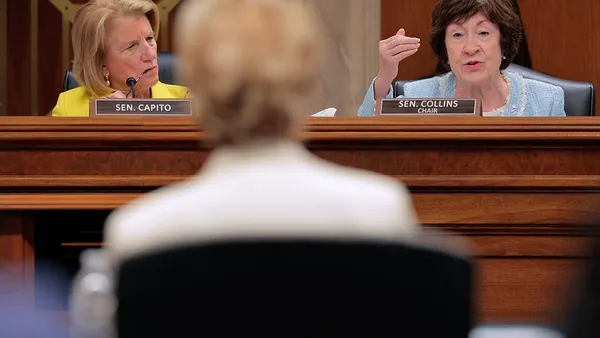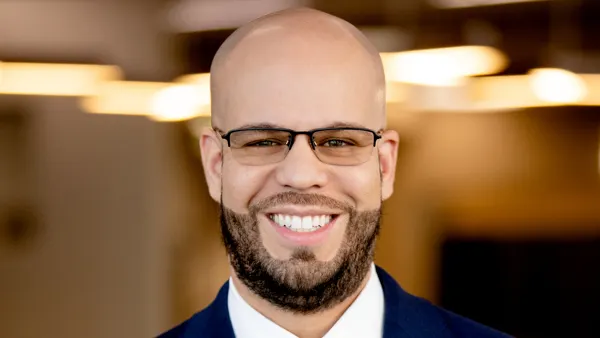Dive Brief:
-
Federal and state authorities should make COVID-19 vaccines immediately available to all school staff and clearly communicate those plans so there can be a speedier return of full in-person learning, said several district superintendents who participated in a Jan. 13 virtual press conference organized by Chiefs for Change.
-
Vaccination distribution programs for school employees should be in addition to other safety protocols many schools already are implementing, such as contact tracing, testing, social distancing, mask use and personal protective equipment availability, the school leaders said.
-
While there is a willingness and demand from school staff to be inoculated, supply chain problems, conflicting information and employees' anxieties are some of the challenges school leaders are facing as they work with local health departments to access vaccines.
Dive Insight:
“We have far too many students who are struggling, and I'm very concerned that we could lose a generation of kids if we don't act quickly,” Robert Runcie, superintendent of Broward County Public Schools in Fort Lauderdale, Florida (pictured above), said during the event.
Although the Centers for Disease Control and Prevention laid out guidance for COVID-19 vaccine distribution that put school staff in an early priority stage to receive vaccines, access has been slow and disparate in many communities, the administrators said. They want the federal government to immediately release all vaccine doses that have received emergency authorization from the U.S. Food and Drug Administration and to make all school staff eligible.
“America needs a comprehensive plan that prioritizes those who work in our schools and broadly communicates the importance of getting vaccinated,” said Chiefs for Change CEO Mike Magee.
In a Jan. 12 readout of a White House meeting with governors, U.S. Health and Human Services Secretary Alex Azar said efforts are underway to expand vaccine administration nationwide and that vaccine supplies are ahead of demands. President-elect Joe Biden has said that in his first 100 days in office, he wants to reopen a majority of schools and provide 100 million vaccinations.
Today, I'm announcing key COVID-19 priorities for the first 100 days of my administration:
— Joe Biden (@JoeBiden) December 8, 2020
- Everyone wears a mask
- 100 million vaccinations
- Reopen the majority of schools
With these steps, we can change the course of the disease and change life in America for the better.
The superintendents participating at the Chiefs for Change press conference said vaccinating school employees quicker will help build confidence that the vaccines are safe and that school buildings can fully open as long as other mitigation efforts are in place. The use of school buildings and the assistance of trained school nurses could even contribute to a community’s efforts to distribute vaccines, some administrators said.
“We must prioritize our public school teachers and staff for this vaccine, our schools are essential to the function of our economy and if we're serious about opening our economy, we cannot do that without fully opening our schools,” Runcie said.
Susan Enfield, superintendent of Highline Public Schools in Burien, Washington, said rapid distribution of vaccines and clear communication would help tamp down employees' stress.
“We are facing a lot of fear and anxiety, understandably so, from teachers and staff in our district about our plans to return on March 1,” Enfield said. “They obviously would like to know when they will be eligible for the vaccine, and I don't have a good answer for them there, because right now I don't think our state has a good answer.”
For their part, school systems are trying to be communicative and transparent with their communities about vaccinations for employees and the safety protocols for reopening school buildings. “We as school districts [are] ready to be part of the solution,” said Pedro Martinez, superintendent of the San Antonio Independent School District in Texas.
For example, Martinez said he has communicated to staff the expectation that children might not receive vaccinations until after this calendar year. “Ensuring that our frontline workers, which includes our teachers and school staff, [receive vaccinations] so that their anxiety is low, that is what's going to help this,” Martinez said.












